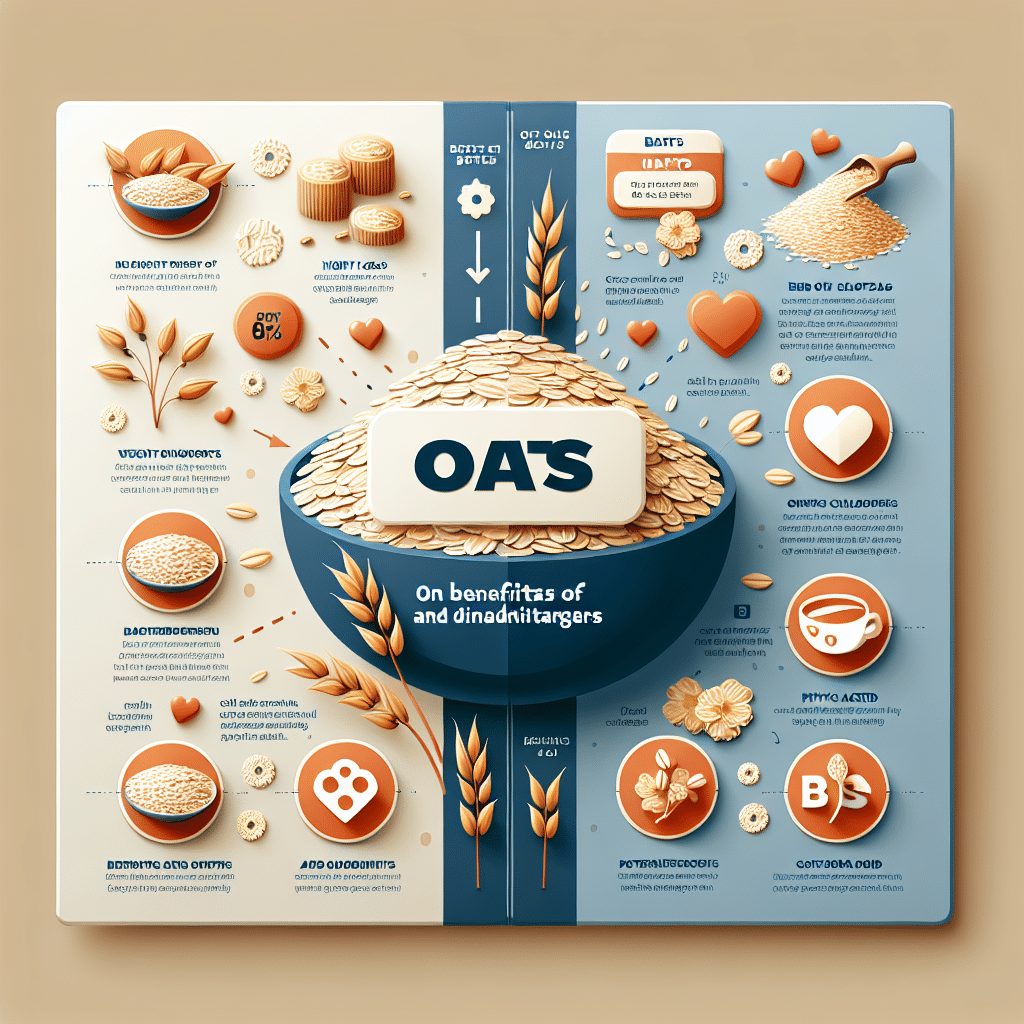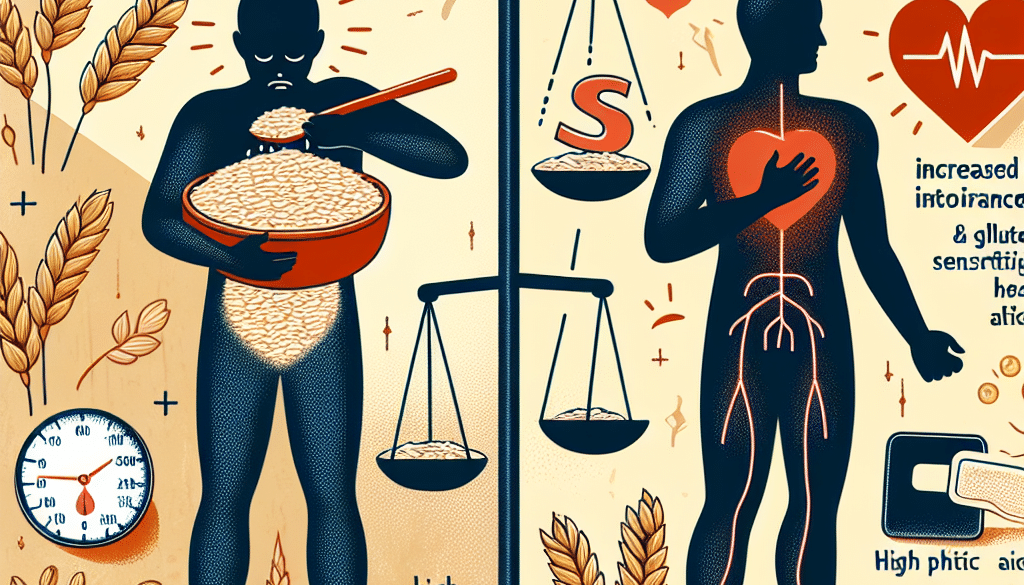What Are The Benefits And Disadvantages To Oat?
-
Table of Contents
Oats: Unveiling the Benefits and Disadvantages

Oats have become a staple in many diets around the world, known for their health benefits and versatility in the kitchen. However, like any food, they come with their own set of advantages and disadvantages. In this article, we will explore the various benefits and potential drawbacks of consuming oats, providing a comprehensive understanding of this popular grain.
Benefits of Oats
Oats are a powerhouse of nutrition, offering a myriad of health benefits that make them a valuable addition to any diet. Here are some of the key advantages of including oats in your meals:
- Rich in Nutrients: Oats are a good source of essential vitamins and minerals, including manganese, phosphorus, magnesium, copper, iron, zinc, folate, and B vitamins.
- High in Antioxidants: They contain avenanthramides, antioxidants that are unique to oats and have been shown to have anti-inflammatory and anti-itching effects.
- Heart Health: The beta-glucan fiber in oats can help lower cholesterol levels, reducing the risk of heart disease.
- Blood Sugar Control: Oats can help regulate blood sugar levels, making them beneficial for people with type 2 diabetes.
- Weight Management: The soluble fiber in oats can help you feel full longer, aiding in weight loss and maintenance.
- Digestive Health: The fiber content also promotes healthy bowel movements and can prevent constipation.
- Gluten-Free: Naturally gluten-free, oats are a great option for those with celiac disease or gluten intolerance, as long as they are not contaminated with gluten from other grains.
- Versatility: Oats can be used in a variety of dishes, from breakfast porridge to baking, making them easy to incorporate into your diet.
Disadvantages of Oats
While oats offer numerous health benefits, there are also some disadvantages to consider:
- Potential for Gluten Contamination: Oats are often processed in facilities that also handle wheat, barley, and rye, which can lead to cross-contamination with gluten.
- Phytic Acid Content: Oats contain phytic acid, which can bind minerals and reduce their absorption. Soaking or fermenting oats can help reduce phytic acid levels.
- Gastrointestinal Issues: For some individuals, the high fiber content in oats can cause bloating, gas, or stomach discomfort, especially when consumed in large amounts.
- Caloric Density: Oats are relatively high in calories, which could be a concern for those monitoring their caloric intake.
- Pesticide Residue: Non-organic oats may contain residues from pesticides used in farming, which can be a health concern for some consumers.
Case Studies and Statistics
Several studies have highlighted the health benefits of oats. For instance, a meta-analysis published in the American Journal of Clinical Nutrition found that oat intake significantly reduced LDL and total cholesterol levels. Another study in the Journal of Nutrition reported that the beta-glucan fiber found in oats enhanced immune response to bacterial infection.
Statistics also support the growing popularity of oats. According to the Whole Grains Council, oat consumption has been on the rise over the past decade, with more people recognizing the grain’s health benefits and incorporating it into their diets.
Conclusion
Oats are a nutritious grain that can offer numerous health benefits, including improved heart health, better blood sugar control, and aid in weight management. However, they also come with potential disadvantages, such as the risk of gluten contamination and gastrointestinal issues for some individuals. By understanding both the benefits and drawbacks, consumers can make informed decisions about including oats in their diets and enjoy this versatile grain in a way that best suits their health needs.
Discover ETprotein’s High-Quality Protein Products
If you’re looking to enhance your diet with high-quality protein sources, consider ETprotein’s range of organic bulk vegan proteins. Their products, including organic rice protein, pea protein, and various seed proteins, are non-GMO, allergen-free, and boast a neutral taste. ETprotein’s offerings are ideal for those seeking to incorporate more plant-based proteins into their diets, whether for health, ethical, or environmental reasons.
About ETprotein:
ETprotein, a reputable protein and L-(+)-Ergothioneine (EGT) Chinese factory manufacturer and supplier, is renowned for producing, stocking, exporting, and delivering the highest quality organic bulk vegan proteins and L-(+)-Ergothioneine. They include Organic rice protein, clear rice protein, pea protein, clear pea protein, watermelon seed protein, pumpkin seed protein, sunflower seed protein, mung bean protein, peanut protein, and L-(+)-Ergothioneine EGT Pharmaceutical grade, L-(+)-Ergothioneine EGT food grade, L-(+)-Ergothioneine EGT cosmetic grade, L-(+)-Ergothioneine EGT reference grade and L-(+)-Ergothioneine EGT standard. Their offerings, characterized by a neutral taste, non-GMO, allergen-free attributes, with L-(+)-Ergothioneine purity over 98%, 99%, cater to a diverse range of industries. They serve nutraceutical, pharmaceutical, cosmeceutical, veterinary, as well as food and beverage finished product distributors, traders, and manufacturers across Europe, USA, Canada, Australia, Thailand, Japan, Korea, Brazil, and Chile, among others.
ETprotein specialization includes exporting and delivering tailor-made protein powder and finished nutritional supplements. Their extensive product range covers sectors like Food and Beverage, Sports Nutrition, Weight Management, Dietary Supplements, Health and Wellness Products, and Infant Formula, ensuring comprehensive solutions to meet all your protein needs.
As a trusted company by leading global food and beverage brands and Fortune 500 companies, ETprotein reinforces China’s reputation in the global arena. For more information or to sample their products, please contact them and email sales(at)ETprotein.com today.












